Psychosocial Aspects of Sport and Physical Activity
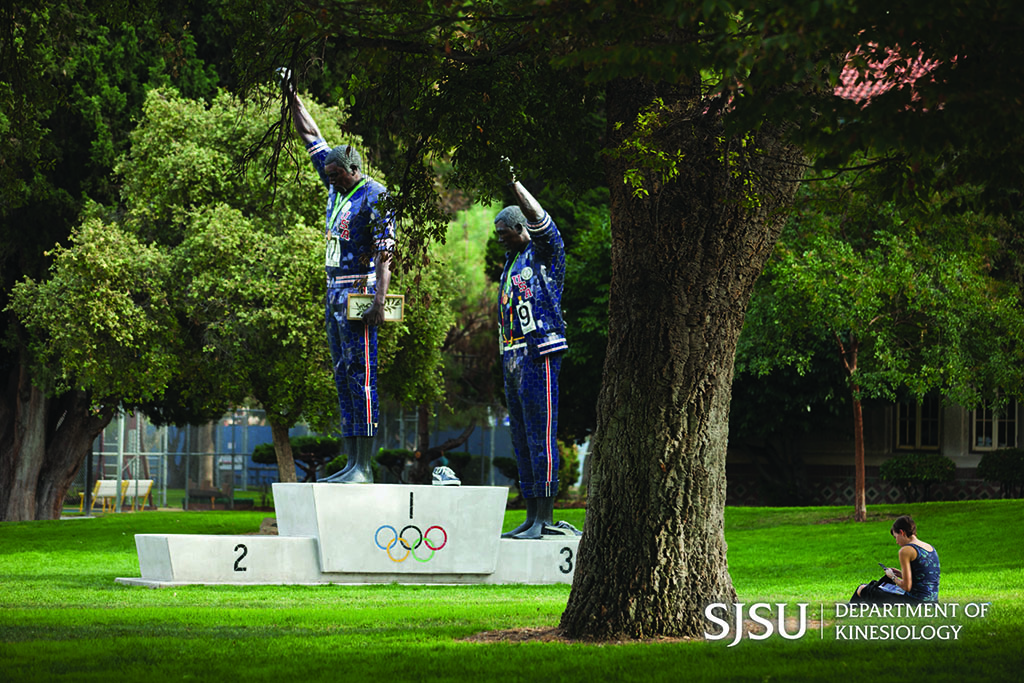
© David Schmitz Photography
Welcome to Graduate Psychosocial Aspects of Sport and Physical Activity [pdf]!
Our Multi-Disciplinary Approach
Psychosocial Aspects of Sport and Physical Activity is the widely accepted title for the academic study of the social institutions and cultural practices related to sport. Psychosocial Aspects of Sport and Physical Activity encompasses a variety of approaches to the study of sport and the body, and is comprised of theories and research methodologies from psychology, sociology, history, philosophy, and cultural studies of sport.
Our Philosophy
In the Department of Kinesiology, Psychosocial Aspects of Sport and Physical Activity approaches sport from a critical perspective that addresses issues of social identity, power, and agency, while recognizing the positive effects of sport and exercise participation and experiences.
Thus, students going through the Psychosocial Aspects of Sport and Physical Activity curriculum will identify and analyze ways that sport and exercise can produce, reproduce, or contest social inequities to potentially affect positive social change at the individual, community, national, and global levels.
Doctoral Program Preparation
By providing a flexible and interdisciplinary course of study, the Psychosocial Aspects of Sport and Physical Activity curriculum will prepare students for careers in sport-related settings such as coaching, sport psychology, and public, community, and private sport organizations. In addition, the Psychosocial Aspects of Sport and Physical Activity curriculum will equip students with a solid academic foundation for entrance into doctoral programs in the US, Canada, and abroad.
Graduate Research
Our graduate students have engaged in a variety of research projects and thesis studies, including numerous sport and exercise psychology studies, coaching studies and manuals, critical media studies, ethnographic work, historical and philosophical analyses of sport and exercise phenomena, and many others. Among the technological resources available to our students is the Qualitative Research lab, equipped with the latest software for data analysis.
WHY MS in KIN at SJSU?
- Understand and apply psychological and sociological approaches to address important issues in sport and exercise subcultures.
- Advance your knowledge through a student-developed, goal-focused, program of study.
- Complete several areas of AASP CMPC coursework.
- Work with internationally published professors in a supportive and encouraging interdisciplinary learning environment.
Highlights
- Research and examine contemporary issues in athletics, sport, and physical activity using psychological and sociological lenses.
- Increase cultural fluency and knowledge about human interactions, movement, fitness, performance, and management.
- Focus on psychological and sociological approaches to improve sport and physical activity experiences.
Program Entry Requirements
- 3.0 GPA in last 60 semester units, (2.75 and above considered)
- Complete Cal State Apply application
- Two letters of recommendation
Coursework
Core Courses
-
KIN 250 - Fundamentals of Quantitative Research
-
KIN 251 - Fundamentals of Qualitative Research
PsychoSocial Aspects of Sport and Physical Activity Courses
- KIN 264 - Sport Sociology
- KIN 267 - Advanced Sport Psychology
Electives
Electives are chosen with your academic advisor to accentuate and bolster your program of study
Alumni Testimonial
Kendra Campbell, MA 2023
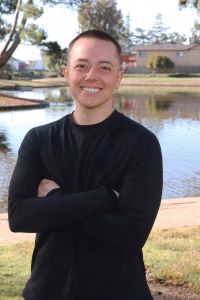
"With the goal of implementing less harmful practices and more inclusion for participation in physical activity my time in this program has provided a newfound confidence in my ability to take on challenges bigger than myself. Through a critical lens, this program has challenged me to find ways where I and the industry as a whole can do better for their athletes and clients."
Matt Gonzalez: MA 2017; Current PhD student at West Virginia
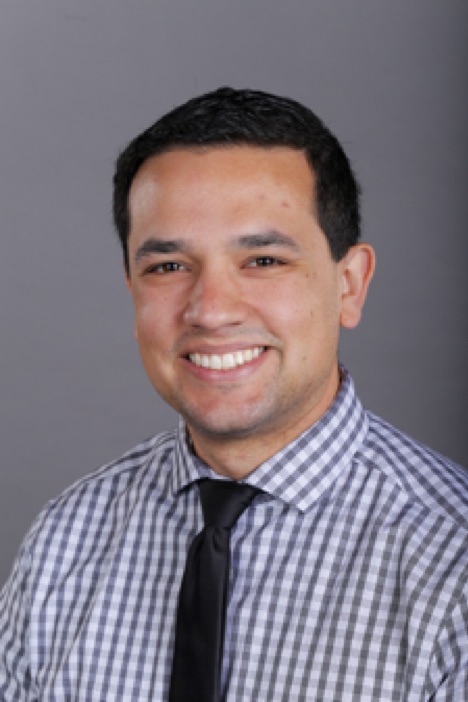
"The Sport Studies graduate program at San Jose State University is where you can expect to find nothing short of unflagging support and dedication from faculty in pursuit of your chosen end goal. For me, that was trying to build a wide-ranging breadth of experience that could compete with others around the nation for admission into quality Ph.D. programs.
I can happily say that I achieved that goal with admission into West Virginia University’s Sport, Exercise, and Performance Psychology Ph.D. program; but that absolutely would not have been possible without the effort invested into my education by everyone at San Jose State University. Whether it was engaging with innovative approaches in qualitative inquiry for my thesis or supporting my entree into applied sport psychology work; I could always count on the Sport Studies faculty to back me up so long as I was willing to do the work. If jumping into the field of sport psychology or sport sociology is where your interest lies, you would be extremely well advised to consider this program!"
Dr. Michael Dao: MA 2013
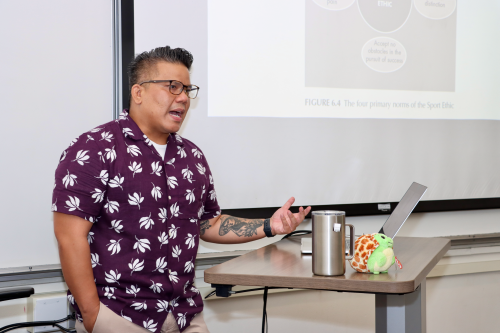
"The MS KIN program is the reason why I have a Ph.D. The faculty nurtured my intellectual growth regarding sports utility in international development while also setting the foundation for my critical and theoretical academic journey. Without their unwavering support, I would not be in my position at SJSU now."
Sport Studies Faculty
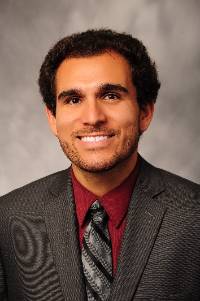
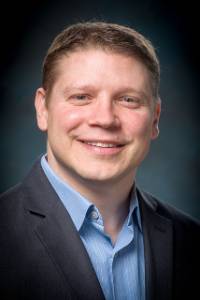
Ted Butryn, Ph.D.
Professor
Sport Sociology and Sport Psychology
Graduate Program Coordinator
408-924-3068
theodore.butryn@sjsu.edu
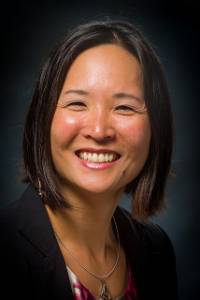
Jessica Chin, Ph.D.
Professor
408-924-3039
jessica.chin@sjsu.edu
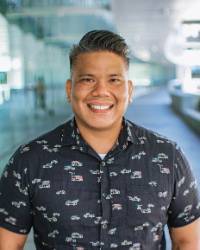

Matthew Masucci, Ph.D.
Professor (Associate Dean-CHHS)
408-924-3010
matthew.masucci@sjsu.edu
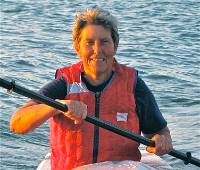
Shirley Reekie, Ph.D.
Professor
408-924-3020
shirley.reekie@sjsu.edu
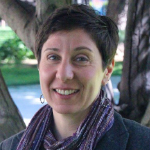
Tamar Semerjian, Ph.D.
Professor and Chair
408-924-3069
tamar.semerjian@sjsu.edu